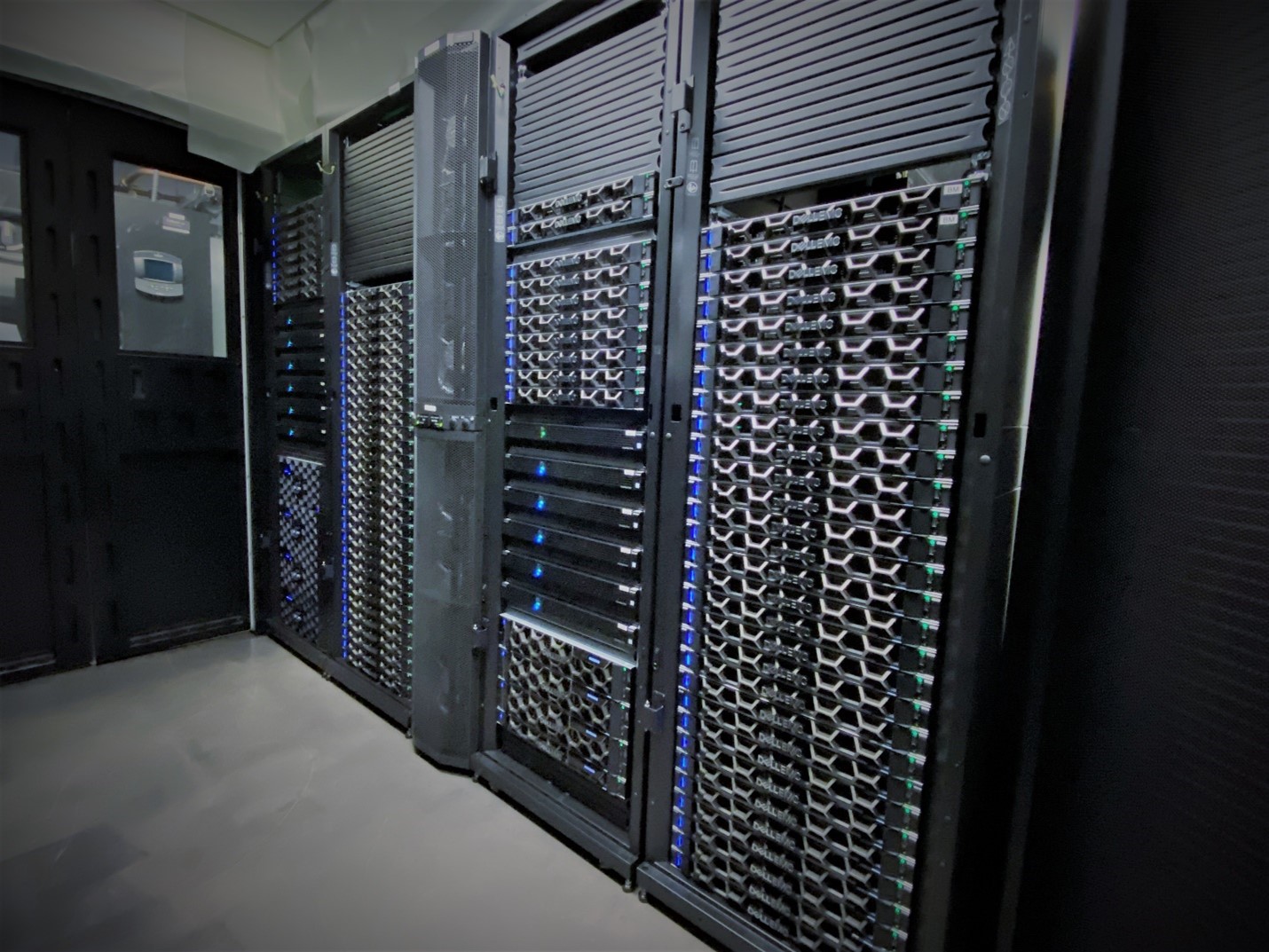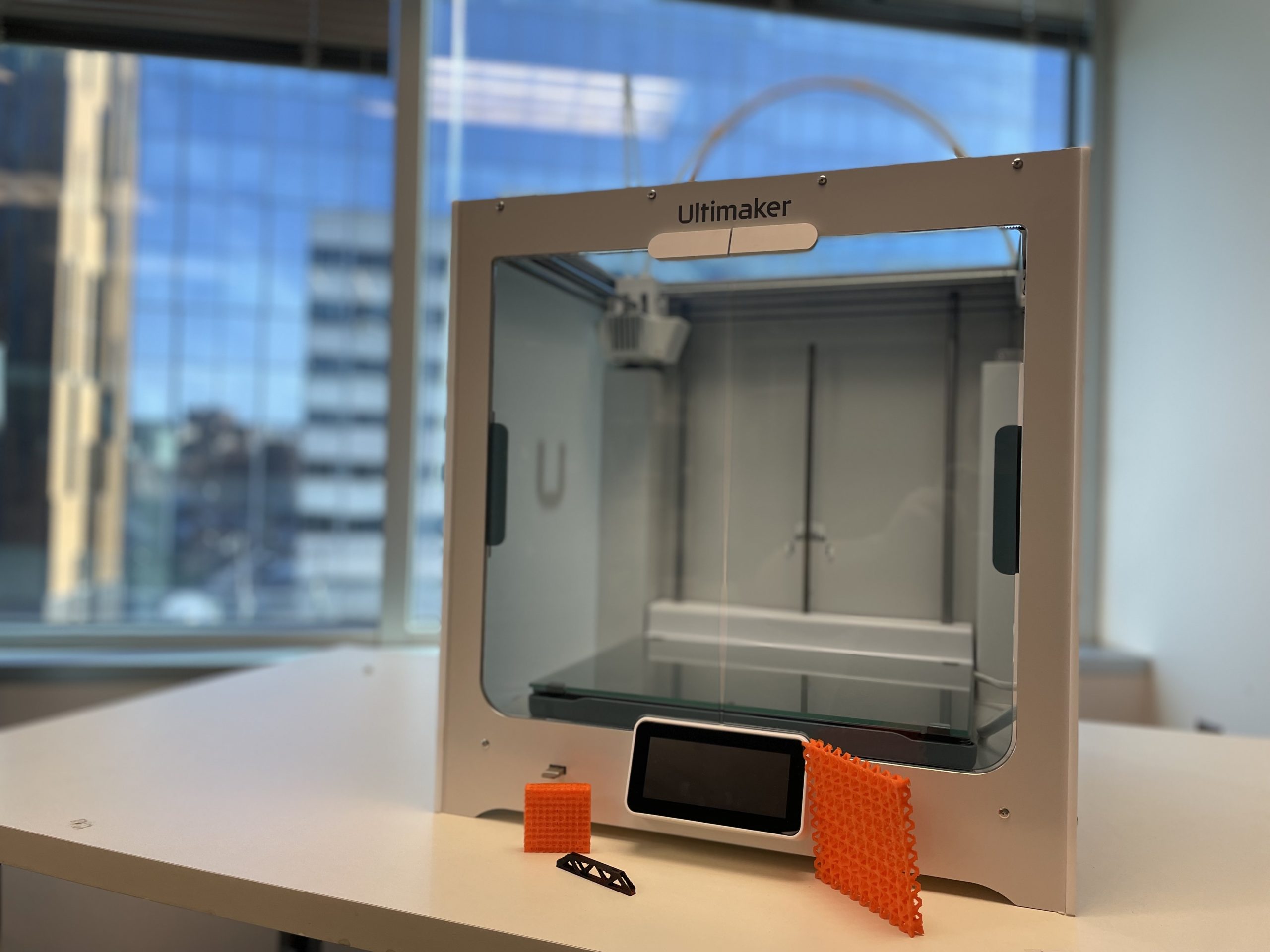MCMB Lab
The MCMB is equipped with a High-Performance Computing (HPC) cluster composed of four compute nodes and a file server. The latest compute nodes consist of 4th Gen Intel Xeon Gold 6400 Processors (4x 32 cores/64 threads), while the central file server utilizes 16 TB of PCIe Gen 4 SSD with 10 TB of HDD reserve. MCMB members interface with the cluster through high-performance Dell workstations equipped with 12th Gen Intel Processors (i9-12900F 16 cores/24 threads) as well as an array of ThinkPad Notebooks (Intel Core i5-7300HQ) for code development, post-processing, and visualization. For Machine Learning (ML) and other GPU-intensive tasks, there are two workstations equipped with NVIDIA GeForce RTX 3090 GPUs. Our clusters are colocated with Drexel’s University Research Computing Facility.

The laboratory is also equipped with a Ultimaker S5 3D printer. This is a fused deposition modeling (FDM) based 3D printer with dual extrusion heads capable of printing thermoplastics such as PLA, PVA, ABS, and others. With a roughly 1 cubic foot build volume, the S5 can produce parts with a micron-scale resolution and layer size as low as 20 microns. Additionally, Ultimaker offers support for the S5 in the Cura software ecosystem. Cura provides flexible support for layout, slicing, and print monitoring in an open-source environment. The Ultimaker S5 and Cura ecosystem is also configurable with multiple print nozzles, air purification systems, and expansion systems capable of metal additive manufacturing. The MCMB Lab has used the Ultimaker S5 for rapid prototyping and test specimen fabrication.

Shared facilities in the Drexel College of Engineering
Drexel University Research Computing Facility
PROTEUS: THE DREXEL CLUSTER
Proteus is Drexel’s main high-performance computer cluster. It houses both AMD and Intel CPUs with QDR Infiniband interconnects and runs the Red Hat Enterprise Linux operating system. Proteus’ compute nodes are grouped into several “blocks”. The University block (approx. 1,000 AMD cores) is available for general purpose computing to any Drexel PI or student who is granted an account. Other blocks are contributed by PIs using research grant and/or startup funds. Block owners have a compute-time allocation whose size is proportional to the number of bases compute units, known as “shares”, owned.
Drexel Centralized Research Facilities (CRF)
The Centralized Research Facilities (CRF) at Drexel University provides additional analytical and imaging tools for our research needs. Equipment available are several scanning electron microscopes (SEM), an environmental scanning electron microscope (ESEM), Raman micro-spectrometers, optical profilometer, transmission electron microscope (TEM), dual-beam forced ion beam scanning electron microscope (FIB-SEM,) x-ray diffraction (XRD), nanoindentation, x-ray computed microtomography (XCT) and other characterization equipment. For more information about CRF, please visit http://crf.coe.drexel.edu/.
Drexel University Machine Shop
The Department of Mechanical Engineering offers a full-service fabrication machine shop. Located in the basement of Hess, this facility has four full-time machinists with a combined industrial and academic experience of more than 100 years. The shop is a multi-purpose machining facility capable of meeting all design needs. The shop and its staff specialize in research and academic custom work, scientific instrumentation, biomedical devices, testing fixtures and fabrications of all sizes.
Undergraduate Computer Lab
Accessible by undergraduates in their junior and senior years, this computer lab offers all the software used in undergraduate MEM courses. Students use this lab to collaborate on class projects, use CAD software, and work on senior design projects. With over 60 computers, 2 projectors and a networked printer, students have ample computational resources at their disposal. Any questions about activities in this room should be directed to the MEM Lab Manager, Rayfield Dobbins.
Undergraduate Experimental Lab
The Undergraduate Experiment Laboratory houses all equipment used in all MEM lab courses (MEM311, MEM331, and MEM351). In addition to the equipment used for these courses, there are also 14 large area workbenches outfitted with computers, miscellaneous measuring tools, and power outlets. Located in AEL 072, the UG experiment lab also serves as a workplace for senior design projects. Students have storage space and tools available to them here. Any questions about equipment or activities in this lab should be directed to the MEM lab manager, Rayfield Dobbins.
